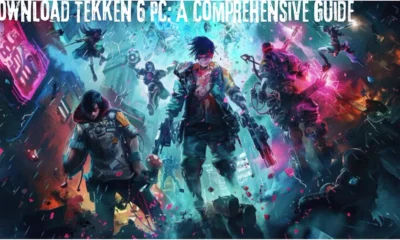NEWS & Society
News the American Secrets.com: A Deeper Dive

In today’s digital age, news is constantly evolving. With the rise of online platforms, accessing information has become easier than ever. One such platform that has gained significant attention is “News the American Secrets.com.” This website claims to provide exclusive news and insights, but is it all it seems?
We will examine the world of “News the American Secrets.com,” looking at its trustworthiness, content, and its effects.We will also discuss the importance of critical thinking and media literacy in today’s information-rich environment.
News the American Secrets.com: What is it?
The website “News the American Secrets.com” posts news items about a range of subjects, such as current affairs, politics, and conspiracy theories. The website has a sizable readership that is keen to consume alternative news sources because of its frequently sensationalized and contentious tone.
It is crucial to remember that the information on the internet is not always correct or accurate. A large number of the articles on “News the American Secrets.com” are based on rumors, false facts, and baseless reports.
The Importance of Critical Thinking and Media Literacy
In today’s world, it is more important than ever to be a critical thinker and media literate. With the proliferation of fake news and misinformation, it is easy to be misled by biased or inaccurate information.
Analyzing data, assessing supporting evidence, and challenging beliefs are all components of critical thinking.Media literacy involves understanding how we construct media messages and how they influence our thoughts and behaviors.
We can become more astute information consumers and make wise decisions by honing these abilities.
How to Evaluate News Sources
When evaluating news sources, it is essential to take into account several important factors. Firstly, it is crucial to consider the credibility of the source.It’s also important to evaluate how accurate the information is.Furthermore, examining the potential biases of the source is equally important. In addition to these, it is vital to evaluate the timeliness and relevance of the news. Lastly, the overall transparency of the source should not be overlooked. By considering all these factors, you can form a more comprehensive judgment about the reliability of the news source.
- Credibility: Is the source reputable?Does it have a history of truthful reporting?
- Does the source exhibit bias? Does it offer a fair and impartial viewpoint?
- Evidence: Does the source provide evidence to support its claims?
- Source Reliability: Are the sources cited reliable and credible?
- Fact-Checking: Has the information been fact-checked by a reputable organization?
The Impact of Misinformation
Misinformation can have a significant impact on individuals and society as a whole. It can lead to:
- Polarization: Misinformation can exacerbate political and social divisions.
- Disinformation: Misinformation can be used to spread disinformation, which is false information deliberately created to deceive.
- Public Health Crises: Misinformation about public health issues can lead to dangerous behaviors and outcomes.
- Erosion of Trust: Misinformation can erode trust in institutions and experts.
To combat the spread of misinformation, it is important to be vigilant and to share accurate information with others.
5 FAQs about News the American Secrets.com
1. Is News.AmericanSecrets.com a Reliable News Source?
No, News.theAmericanSecrets.com is not a reliable news source. The website often publishes sensationalized and unsubstantiated claims, making it difficult to verify the accuracy of its information. It’s crucial to approach the content with a critical eye and cross-reference information with other reputable sources.
2. Why Should I Be Cautious About News on AmericanSecrets.com?
News.theAmericanSecrets.com frequently promotes conspiracy theories and misinformation. This can lead to confusion, distrust, and even dangerous actions. It’s essential to be aware of the website’s biases and to fact-check any information you encounter there.
3. How Can I Protect Myself from Misinformation?
To protect yourself from misinformation, practice critical thinking and media literacy. This involves evaluating news sources, verifying information, and being aware of your own biases. Additionally, consider using fact-checking websites to verify claims and avoid sharing unverified information on social media.
4. What Are the Dangers of Consuming Misinformation?
Misinformation can have serious consequences, including:
- Polarization: It can deepen divisions and create hostility between different groups.
- Disinformation: It can be used to spread false information deliberately with the intent to deceive.
- Public Health Crises: Misinformation about health issues can lead to dangerous behaviors and outcomes.
- Erosion of Trust: It may cause people to lose faith in authorities and organizations.
5. How Can I Contribute to a More Informed Society?
To contribute to a more informed society, you can:
- Share accurate information: Promote reliable news sources and debunk misinformation.
- Encourage critical thinking: Encourage others to think critically about the information they consume.
- Support fact-checking organizations: Donate to or volunteer with organizations that work to verify information.
- Be mindful of your own online behavior. Avoid sharing unverified information on social media.
Conclusion
Although the website “News the American Secrets.com” offers news and insights, it is crucial to view its content critically. We may actively become more sensitive information consumers and steer clear of false information by developing our media literacy and critical thinking abilities.
It’s also critical to recognize the effects of false information and take action to stop its spread. We may contribute to the development of a more informed and involved society by sharing correct information and encouraging critical thinking.
Additional Tips for Evaluating News Sources
- Verify the URL: Websites with odd or misspelled URLs should be avoided.
- Look for Author Information: Reputable news organizations will usually identify the author of an article.
- Check the date: Make sure the information is current.
- Examine the motivation of the source: Why is this information being shared by the source? Is there a secret plan?
- Use Fact-Checking Websites: There are many websites that specialize in fact-checking news stories.
By following these tips, you can become a more informed and discerning news consumer.
NEWS & Society
Barcolana News: Sailing into the Heart of the World’s Largest Regatta

The Barcolana News is your ultimate guide to one of the most spectacular sailing events in the world—the Barcolana Regatta. Held annually in the Gulf of Trieste, Italy, this iconic event attracts thousands of sailors, spectators, and sailing enthusiasts from across the globe. Whether you’re a seasoned sailor, a casual observer, or someone curious about this maritime marvel, Barcolana News brings you the latest updates, stories, and insights from this extraordinary event.
In this article, we’ll dive into the history of the Barcolana, its significance, and how Barcolana News keeps you connected to this thrilling world of sailing.
What is the Barcolana Regatta?
The Barcolana Regatta is a historic sailing race that takes place every October in the Gulf of Trieste. Founded in 1969, it has grown into the largest sailing event in the world, with over 2,000 boats and 25,000 sailors participating each year. The regatta is unique for its inclusive format, allowing boats of all sizes and skill levels to compete together on the same course.
The event is not just a race; it’s a celebration of sailing, community, and the sea. From professional sailors to families enjoying a day on the water, the Barcolana brings people together in a shared love for the ocean.
The Role of Barcolana News
Barcolana News is the official news platform dedicated to covering every aspect of the regatta. From race results and participant profiles to behind-the-scenes stories and event highlights, Barcolana News ensures that fans and participants stay informed and engaged.
The platform offers:
- Real-time updates during the regatta
- Exclusive interviews with sailors and organizers
- Historical insights and fun facts about the event
- Practical information for spectators and participants
With its comprehensive coverage, Barcolana News has become the go-to source for anyone interested in the Barcolana Regatta.
Why the Barcolana Regatta Matters
1. A Unifying Event
The Barcolana is more than just a race; it’s a symbol of unity. Sailors from different countries, cultures, and backgrounds come together to share their passion for sailing. The event fosters a sense of camaraderie and mutual respect among participants.
2. Promoting Sailing
By welcoming boats of all sizes and skill levels, the Barcolana makes sailing accessible to everyone. It inspires people to take up the sport and introduces newcomers to the joys of being on the water.
3. Boosting Local Economy
The regatta attracts thousands of visitors to Trieste, providing a significant boost to the local economy. Hotels, restaurants, and businesses thrive during the event, making it a vital part of the region’s cultural and economic landscape.
4. Environmental Awareness
In recent years, the Barcolana has embraced sustainability initiatives, promoting environmental awareness and encouraging participants to protect the oceans.
Key Highlights of Barcolana News Coverage
1. Race Day Updates
On the day of the regatta, Barcolana News provides live updates, including start times, weather conditions, and race progress. Fans can follow their favorite boats and sailors in real time.
2. Participant Profiles
From professional sailors to amateur enthusiasts, Barcolana News shines a spotlight on the people who make the regatta special. These profiles offer a glimpse into the lives and motivations of participants.
3. Historical Features
The Barcolana has a rich history, and Barcolana News delves into its past with fascinating stories and archival photos. These features celebrate the event’s legacy and its evolution over the decades.
4. Spectator Guides
For those planning to attend the regatta, Barcolana News offers practical tips on the best viewing spots, transportation options, and local attractions.
The Evolution of the Barcolana Regatta
Since its humble beginnings in 1969, the Barcolana has grown into a global phenomenon. Here’s a look at how the event has evolved:
1. Early Years
The first Barcolana featured just 51 boats. Despite its small scale, the event captured the imagination of the local community and laid the foundation for future growth.
2. Rise to Prominence
By the 1980s, the Barcolana had gained international recognition. The regatta’s unique format and festive atmosphere attracted sailors and spectators from around the world.
3. Modern Era
Today, the Barcolana is the largest sailing event in the world. It combines competitive racing with a vibrant festival, featuring concerts, exhibitions, and cultural events.
How Barcolana News Enhances the Experience
1. Real-Time Engagement
Barcolana News keeps fans connected to the action, even if they can’t be there in person. Live updates, photos, and videos bring the regatta to life.
2. Community Building
By sharing stories and updates, Barcolana News fosters a sense of community among sailors, fans, and organizers. It’s a platform for celebrating shared experiences and achievements.
3. Educational Resource
For those new to sailing, Barcolana News offers informative articles on the basics of the sport, the rules of the regatta, and the history of the event.
Challenges and Opportunities
Like any major event, the Barcolana faces challenges, including logistical complexities, environmental concerns, and the need to adapt to changing times. However, these challenges also present opportunities for innovation and growth.
Barcolana News plays a crucial role in addressing these challenges by:
- Promoting sustainability initiatives
- Encouraging community involvement
- Highlighting the event’s positive impact
How to Stay Connected with Barcolana News
1. Visit the Website
The official Barcolana News website is your one-stop destination for all things related to the regatta.
2. Follow on Social Media
Stay updated by following Barcolana News on platforms like Facebook, Instagram, and Twitter.
3. Subscribe to the Newsletter
Sign up for the Barcolana News newsletter to receive the latest updates and stories directly in your inbox.
4. Attend the Event
If possible, experience the Barcolana in person. There’s nothing quite like the thrill of watching thousands of boats set sail in the Gulf of Trieste.
The Future of the Barcolana Regatta
As the Barcolana looks to the future, it remains committed to its core values of inclusivity, sustainability, and community. Plans for future editions include:
- Expanding environmental initiatives
- Enhancing the spectator experience
- Introducing new events and activities
With Barcolana News by your side, you’ll be the first to know about these exciting developments.
Conclusion
The Barcolana Regatta is a celebration of sailing, community, and the sea. It’s an event that brings people together, inspires new generations of sailors, and showcases the beauty of the Gulf of Trieste.
Through its comprehensive coverage, Barcolana News ensures that fans and participants stay connected to this extraordinary event. Whether you’re following the race from home or cheering from the shores of Trieste, Barcolana News is your trusted source for all things Barcolana.
So, set sail with Barcolana News and immerse yourself in the excitement, history, and spirit of the world’s largest regatta.
By focusing on the keyword Barcolana News and addressing the needs of its audience, this article not only informs but also engages readers, encouraging them to explore and celebrate this iconic sailing event.
NEWS & Society
Applewood News: Your Trusted Source for Local Stories and Community Updates

In today’s fast-paced world, staying informed about local events, community developments, and regional news is more important than ever. For residents of Applewood and surrounding areas, Applewood News has become the go-to source for reliable, engaging, and timely information. Whether you’re looking for the latest updates on local government decisions, community events, or human-interest stories, Applewood News delivers it all with clarity and professionalism.
In this article, we’ll explore what makes Applewood News stand out, its impact on the community, and how it continues to evolve to meet the needs of its readers.
What is Applewood News?
Applewood News is a digital and print news platform dedicated to covering stories that matter to the Applewood community. Founded with the mission to inform, educate, and connect residents, the platform has grown into a trusted resource for local journalism.
From breaking news to in-depth features, Applewood News covers a wide range of topics, including:
- Local government and politics
- Education and school updates
- Business and economic developments
- Community events and initiatives
- Human-interest stories and profiles
The platform’s commitment to accuracy, fairness, and community engagement has earned it a loyal readership and a reputation for excellence.
Why Applewood News Matters
1. Hyperlocal Focus
Unlike national news outlets that cover broad topics, Applewood News focuses exclusively on the Applewood area. This hyperlocal approach ensures that readers receive information directly relevant to their lives. Whether it’s a new park opening, a change in local tax policies, or a profile of a neighborhood hero, Applewood News keeps residents informed about what’s happening in their backyard.
2. Community Connection
Applewood News isn’t just a news outlet; it’s a community hub. By highlighting local events, businesses, and individuals, the platform fosters a sense of connection and pride among residents. Readers often share stories with friends and neighbors, sparking conversations and strengthening community bonds.
3. Trusted Journalism
In an era of misinformation, Applewood News stands out for its commitment to factual, unbiased reporting. The platform’s team of experienced journalists adheres to strict ethical standards, ensuring that every story is thoroughly researched and verified.
The Evolution of Applewood News
Applewood News has come a long way since its inception. Originally a small print publication, it has embraced digital transformation to reach a wider audience. Today, the platform offers:
- A user-friendly website with real-time updates
- A mobile app for on-the-go access
- Social media channels for interactive engagement
- A weekly email newsletter featuring top stories
This multi-channel approach ensures that readers can access news in the format that suits them best.
Key Features of Applewood News
1. Breaking News Alerts
When something important happens in Applewood, residents don’t have to wait for the next day’s paper. Applewood News provides instant updates through its website, app, and social media channels.
2. In-Depth Reporting
Beyond headlines, Applewood News delves into the stories behind the news. Investigative pieces, feature articles, and opinion columns offer readers a deeper understanding of local issues.
3. Community Voices
Applewood News encourages community participation by publishing letters to the editor, guest columns, and reader-submitted stories. This inclusive approach ensures that diverse perspectives are represented.
4. Event Calendar
Looking for something to do in Applewood? The platform’s event calendar lists upcoming activities, from farmers’ markets to town hall meetings.
How Applewood News Impacts the Community
1. Informing Residents
Knowledge is power, and Applewood News empowers residents by keeping them informed about important issues. Whether it’s a proposed development project or a new school policy, the platform ensures that residents have the information they need to make informed decisions.
2. Holding Leaders Accountable
Local governments and organizations are more transparent and accountable when journalists are watching. Applewood News plays a vital role in holding leaders to account by reporting on their actions and decisions.
3. Celebrating Local Achievements
From student accomplishments to business milestones, Applewood News shines a spotlight on the people and organizations making a positive impact in the community.
4. Encouraging Civic Engagement
By covering local elections, town hall meetings, and community initiatives, Applewood News encourages residents to get involved in shaping the future of their community.
Challenges and Opportunities
Like all media organizations, Applewood News faces challenges in today’s rapidly changing landscape. Declining print revenues, competition from social media, and the spread of misinformation are just a few of the hurdles. However, the platform has turned these challenges into opportunities by:
- Embracing digital innovation
- Building a strong social media presence
- Focusing on quality over quantity
- Engaging directly with readers
How to Get the Most Out of Applewood News
1. Subscribe to the Newsletter
Stay updated with the latest stories by signing up for Applewood News’ weekly newsletter. It’s a convenient way to get the top headlines delivered straight to your inbox.
2. Follow on Social Media
Connect with Applewood News on platforms like Facebook, Twitter, and Instagram for real-time updates and interactive content.
3. Support Local Journalism
Consider subscribing to Applewood News or supporting it through donations. Your support helps ensure that quality local journalism continues to thrive.
4. Share Your Story
Have a story idea or want to contribute? Reach out to Applewood News. The platform values input from the community and welcomes submissions.
The Future of Applewood News
As Applewood continues to grow and evolve, so too will Applewood News. The platform is committed to staying ahead of the curve by:
- Expanding its digital offerings
- Exploring new storytelling formats, such as podcasts and video
- Strengthening partnerships with local organizations
- Continuing to prioritize community engagement
With its finger on the pulse of the community, Applewood News is poised to remain a vital resource for years to come.
Conclusion
In a world where news can often feel overwhelming or disconnected, Applewood News provides a refreshing focus on what truly matters: the local community. By delivering accurate, engaging, and relevant stories, the platform has become an indispensable part of life in Applewood.
Whether you’re a long-time resident or new to the area, Applewood News is your trusted source for staying informed, connected, and inspired. So, the next time you want to know what’s happening in your neighborhood, turn to Applewood News—because local stories matter.
By focusing on the keyword Applewood News and addressing the needs of its audience, this article not only informs but also engages readers, encouraging them to explore and support this valuable community resource.
NEWS & Society
Bill Romanowski News: Updates on the Controversial NFL Legend’s Life and Career

Bill Romanowski remains one of the most polarizing figures in NFL history. Known for his ferocious playstyle, four Super Bowl rings, and a career marred by controversies, Romanowski continues to make headlines long after retiring in 2003. This article dives into the latest Bill Romanowski news, exploring his post-retirement ventures, legal battles, health advocacy, and enduring legacy.
Recent Legal Battles: Lawsuits and Neighborhood Feuds
Romanowski’s knack for controversy hasn’t faded. In 2022, he and his wife, Julie, faced a lawsuit from a former neighbor in San Jose, California. The plaintiff accused the couple of harassment, claiming they installed surveillance cameras pointing directly into her home and verbally threatened her. Romanowski denied the allegations, calling them “baseless,” but the case drew media attention for its bizarre details.
The lawsuit was settled out of court in early 2023, though terms remain undisclosed. This incident echoes past legal troubles, including a 2003 felony prescription drug charge (later dismissed) and a 2005 civil suit in which he admitted to illegally obtaining prescription stimulants. Legal experts suggest Romanowski’s combative persona—both on and off the field—continues to shape his public image.
Health Advocacy: Addressing CTE and Brain Injury Concerns
Romanowski’s physicality as a linebacker took a toll. In recent years, he’s become vocal about brain health, particularly chronic traumatic encephalopathy (CTE). During a 2021 interview with Sports Illustrated, he revealed he’d suffered over 20 concussions and admitted, “I live with the consequences every day.”
His company, Nutrition53, markets supplements claiming to support cognitive function. While some medical professionals question the efficacy of his products, Romanowski insists they’re backed by personal experience. In 2023, he partnered with the Concussion Legacy Foundation to fund CTE research, a move praised by advocates but met with skepticism due to his history of promoting unverified health solutions.
Media Appearances: Podcasts, Documentaries, and Hot Takes
Romanowski stays relevant through media engagements. In 2022, he launched the Legends of Football podcast, interviewing NFL icons like Terrell Owens and Ray Lewis. The show blends nostalgia with unfiltered opinions, including Romanowski’s defense of his aggressive tactics: “I played to win—period.”
He also appeared in Netflix’s Untold: Crime & Penalties (2021), discussing the 2003 Danville Dashers scandal, where he allegedly supplied teammates with painkillers. While Romanowski denied involvement, the documentary reignited debates about his ethics.
His Twitter account remains active, mixing motivational posts with critiques of modern NFL rules. A 2023 tweet lambasting the league’s concussion protocols went viral, with fans split over his blunt delivery.
Business Ventures: Nutrition53 and Beyond
Nutrition53, co-founded with Julie in 2009, remains Romanowski’s primary business focus. The company sells protein powders, vitamins, and “brain-boosting” supplements. Despite criticism over aggressive marketing tactics—including claims that their products “reverse cognitive decline”—the brand has loyal followers.
In 2023, Nutrition53 expanded into CBD products, capitalizing on the wellness trend. However, the venture faces legal scrutiny. A class-action lawsuit filed in Colorado alleges false advertising regarding CBD potency. Romanowski’s team calls the suit “a cash grab,” but it underscores the risks of his entrepreneurial hustle.
Legacy Revisited: How the NFL Remembers Romanowski
Romanowski’s legacy divides fans and analysts. His accolades—two Pro Bowls, four Super Bowl wins with the 49ers and Broncos—are undeniable. Yet his reputation as a “dirty player” overshadows achievements. Former rivals, including Shannon Sharpe and Kerry Collins, have publicly condemned his on-field conduct, including spitting in Sharpe’s face during a 2002 game.
Recent ESPN documentaries highlight his role in the steroid-riddled NFL of the ’90s. While Romanowski denies steroid use, former teammates like Ted Washington have hinted otherwise. Historians argue his career embodies the league’s struggle to balance entertainment with player safety.
Family Life: Support System Amid Chaos
Julie Romanowski, Bill’s wife of over 30 years, remains his staunchest defender. The couple’s two children, Daley and Raven, have pursued athletics—Daley as a fitness influencer and Raven in collegiate soccer. In a 2023 YouTube interview, Julie credited their marriage’s longevity to “thick skin and dark humor.”
The family’s Colorado home doubles as Nutrition53’s headquarters, blending personal and professional lives. Despite their shared ventures, insiders note tensions over Bill’s relentless work ethic and lingering legal issues.
Future Endeavors: What’s Next for Romo?
At 57, Romanowski shows no signs of slowing. He’s hinted at a memoir detailing his “no regrets” philosophy, though publishers reportedly hesitate over liability concerns. He’s also exploring acting, with a minor role in an upcoming sports drama film.
His partnership with the XFL, announced in early 2023, aims to mentor young players. Critics question his suitability as a role model, but supporters argue his experience offers invaluable lessons.
5 Main FAQs about Bill Romanowski News
1. Did Bill Romanowski ever face suspension during his NFL career for his aggressive play?
Yes, Bill Romanowski faced multiple fines and disciplinary actions during his NFL career for his aggressive and often controversial behavior on the field. However, he was never formally suspended by the league. His most infamous incidents, such as spitting on J.J. Stokes and breaking Kerry Collins’ jaw during a practice, drew significant criticism but did not result in suspensions. The NFL’s disciplinary policies in the 1990s and early 2000s were less stringent compared to today, which allowed Romanowski to avoid harsher penalties.
2. What is Bill Romanowski’s relationship with former teammates and coaches?
Romanowski’s relationships with former teammates and coaches are mixed. While some, like Steve Young and John Elway, have praised his work ethic and contributions to their Super Bowl-winning teams, others, such as Shannon Sharpe, have publicly criticized him for his dirty play and lack of sportsmanship. Romanowski’s intense personality and on-field antics often created friction, even as his talent and dedication earned respect from many in the league.
3. Has Bill Romanowski ever admitted to using performance-enhancing drugs (PEDs)?
Bill Romanowski has never publicly admitted to using performance-enhancing drugs (PEDs), despite widespread speculation and allegations throughout his career. In his 2005 book, Romo: Life on the Edge, he denied using steroids but admitted to using questionable methods to gain a competitive edge, including taking prescription stimulants like Adderall. His association with BALCO, the lab at the center of a major steroid scandal in the early 2000s, further fueled rumors, though he was never formally implicated.
4. What role did Bill Romanowski play in the BALCO scandal?
Bill Romanowski was linked to the BALCO scandal due to his association with Victor Conte, the founder of BALCO, who was convicted of distributing steroids to athletes. Romanowski testified before a grand jury in 2003 as part of the investigation but was never charged with any wrongdoing. Despite this, his connection to BALCO and his admission of using questionable supplements have led many to question the extent of his involvement in PED use during his career.
5. How has Bill Romanowski’s health been affected by his NFL career?
Bill Romanowski has openly discussed the physical and mental toll of his NFL career, particularly the long-term effects of repeated head trauma. He has admitted to suffering over 20 concussions and experiencing symptoms consistent with CTE, such as memory loss, mood swings, and cognitive decline. His advocacy for brain health and his company, Nutrition53, which sells supplements aimed at improving cognitive function, stem from his personal struggles with the aftermath of his playing days.
Conclusion: The Unending Saga of Bill Romanowski
Bill Romanowski’s life post-NFL mirrors his playing career: chaotic, confrontational, and captivating. From legal skirmishes to health advocacy, he remains a lightning rod for debate. While some dismiss him as a relic of football’s violent past, others admire his resilience and transparency.
As the NFL evolves, Romanowski’s story serves as a cautionary tale and a testament to the sport’s complexities. Whatever the next chapter holds, one thing is certain—Bill Romanowski news will continue to spark conversations, for better or worse.
-

 Travel7 months ago
Travel7 months agoTop 5 Ways Stephen Revetria Elevates the U.S. Travel and Tourism Advisory Board
-

 Crypto8 months ago
Crypto8 months agoUnlock 7 Powerful Cryptocurrency Insights: Delving into NewzNav.com’s Crypto Archives
-

 Technology8 months ago
Technology8 months agoHydrogen Water Machines: Revolutionizing Hydration and Wellness
-

 NEWS & Society8 months ago
NEWS & Society8 months agoChurch of the Holy Spirit News: Events & Impact
-

 Games8 months ago
Games8 months agoDownload Tekken 6 PC: A Comprehensive Resource
